Peking University, November 10, 2024:Anwar Ibrahim, the Prime Minister of Malaysia, stood on the stage of Yingjie Overseas Exchange Center at Peking University and recited the lines of a Chinese poet in Mandarin. “山重水复疑无路,柳暗花明又一村(After endless mountains and rivers that leave doubt whether there is a path out, suddenly one encounters the shade of a willow, bright flowers, and a lovely village).” These lines, reflecting the strength and optimism in Malaysia-China ties as both nations strive to build prosperity for all, instantly draw thunderous applause from the audience.
The Prime Minister addresses the audience
Celebrating the 50th Anniversary of the Establishment of Diplomatic Relations Between China and Malaysia and the Year of China-Malaysia Friendship, the Prime Minister led a delegation on a friendly visit to China. As an important part of this visit, the delegation, which included Foreign Minister Utama Haji Mohamad bin Hasan, Minister of Investment, Trade, and Industry Tengku Zafrul Aziz, Minister of Human Resources Steven Sim Chee Keong, and Malaysian Ambassador to China, Norman Muhamad, was warmly welcomed by the Peking University Council Chairman Hao Ping, President Gong Qihuang, and our enthusiastic faculty and students.
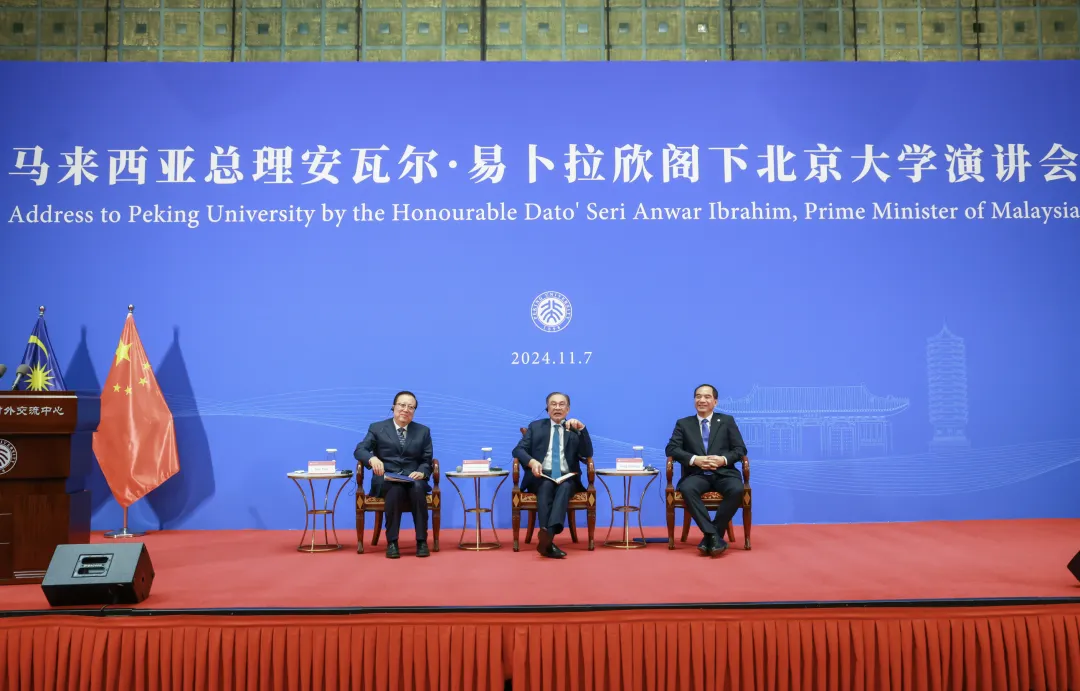 Hao Ping, Anwar Ibrahim, Gong Qihuang (from left to right)
Hao Ping, Anwar Ibrahim, Gong Qihuang (from left to right)
On behalf of Peking University, Council Chairman Hao Ping first warmly welcomed the Prime Minister and his delegation. Hao emphasized PKU’s role as a bridge for cultural and intellectual exchange with Malaysia, highlighting the University’s strong connections with Malaysia, including a growing community of Malaysian students at PKU. “Prime Minister Anwar Ibrahim's friendly visit not only affirms the achievements of past cultural exchanges between the two countries but also sets an encouraging expectation for stronger collaboration in the future.”
Peking University President Gong Qihuang echoed his warm welcome and praised the long-standing friendly relations between Peking University and various sectors in Malaysia, including signed MOUs with the University of Malaya and collaborations with Malaysian universities to establish "Belt and Road" AI+ laboratories and in new engineering fields. Other PKU exchange partners include Universiti Kebangsaan Malaysia and Universiti Teknologi Malaysia.
Since the 1980s, nearly a thousand Malaysian students have graduated from Peking University, contributing significantly across various industries and serving as ambassadors of friendship and development between China and Malaysia.
Titled Building Bridges: Strengthening Malaysia-China Relations and ASEAN's Central Role in a Changing Global Order, the Prime Minister began his address by describing Peking University as a “beacon of Chinese higher education”and affirming the University’s role in educational exchanges between the two country. Reflecting on the strength of China-Malaysia relations, he noted how these ties have“deepened and matured” over time, rooted in mutual respect, economic partnerships, and cultural exchanges.
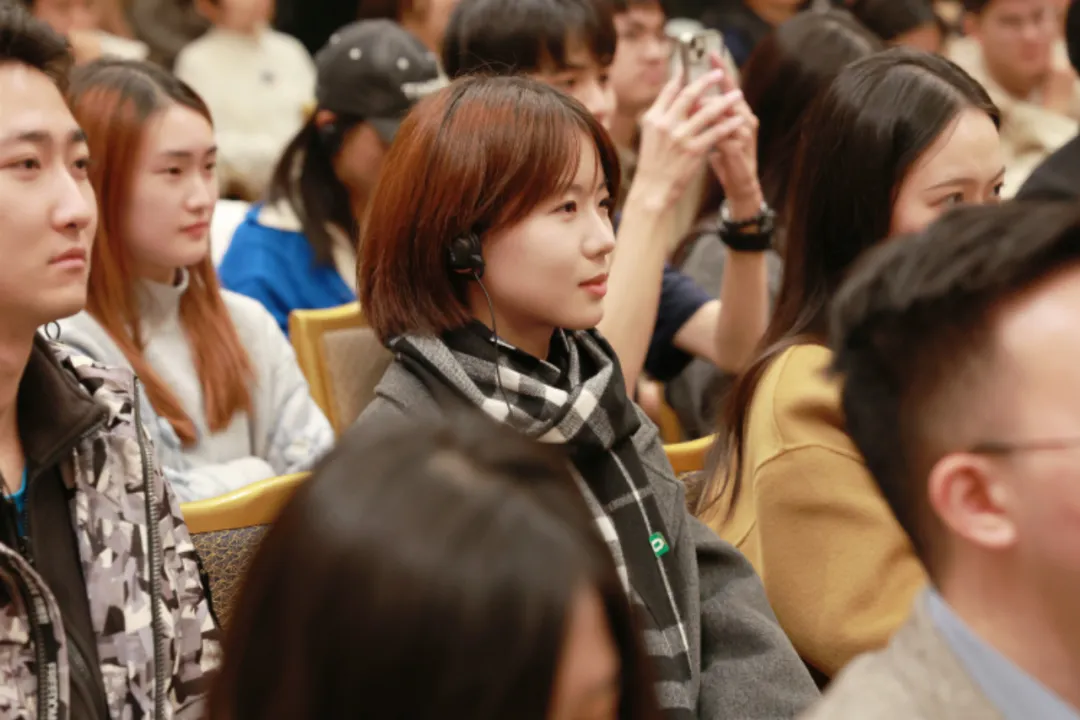
In 2025, Malaysia will assume the role of ASEAN chair. “ASEAN, as the fifth-largest economy globally, is ready to take on new roles and responsibilities, committed to inclusivity, sustainability, and constructive global engagement.” The Prime Minister also drew parallels between the Chinese Belt and Road Initiative, Malaysia Madani, and ASEAN's commitment to enhancing connectivity and inclusive development among member states. China has made significant progress in digital transformation, artificial intelligence, and green energy, which ASEAN views as key areas for cooperation to address global challenges and promote long-term resilience.
In the ensuing Q&A session, Zhu Junyu, a PKU undergraduate from the School of Foreign Languages who participated in the ASEAN-China Youth Exchange Camp in Xiamen this past summer, asked Prime Minister Anwar Ibrahim about Malaysia's specific role in nurturing the positive relationship between China and ASEAN.
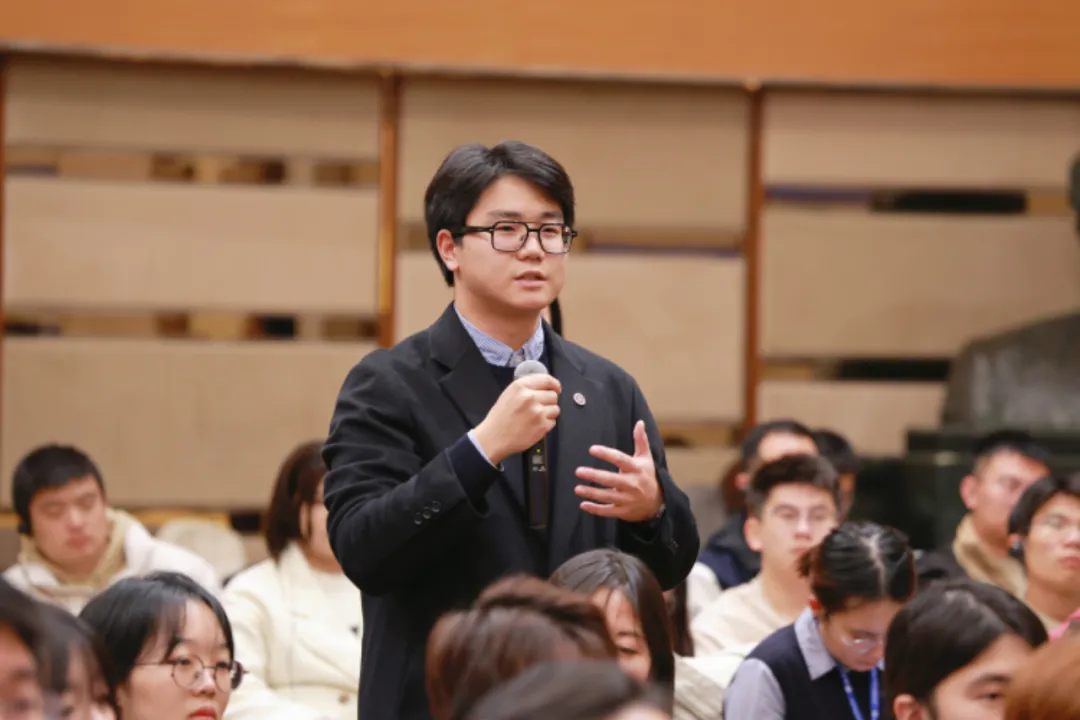 PKU student Zhu Junyu
PKU student Zhu Junyu
The Prime Minister responded that Malaysia, as the rotating chair of ASEAN in 2025, is well-positioned to strengthen collaboration between China, ASEAN, and the global community. He reaffirmed Malaysia's long-standing good relations with China and highlighted the importance of Southeast Asian countries recognizing China's significant economic contributions. As an ending note, he urged all nations to prioritize building multilateral cooperation with a win-win mentality.
The second question came from Lee Jun Hao, a Malaysian student from the School of International Studies in his senior year. He inquired about deepening collaboration between China and Malaysia in the areas of sustainable development and climate action.
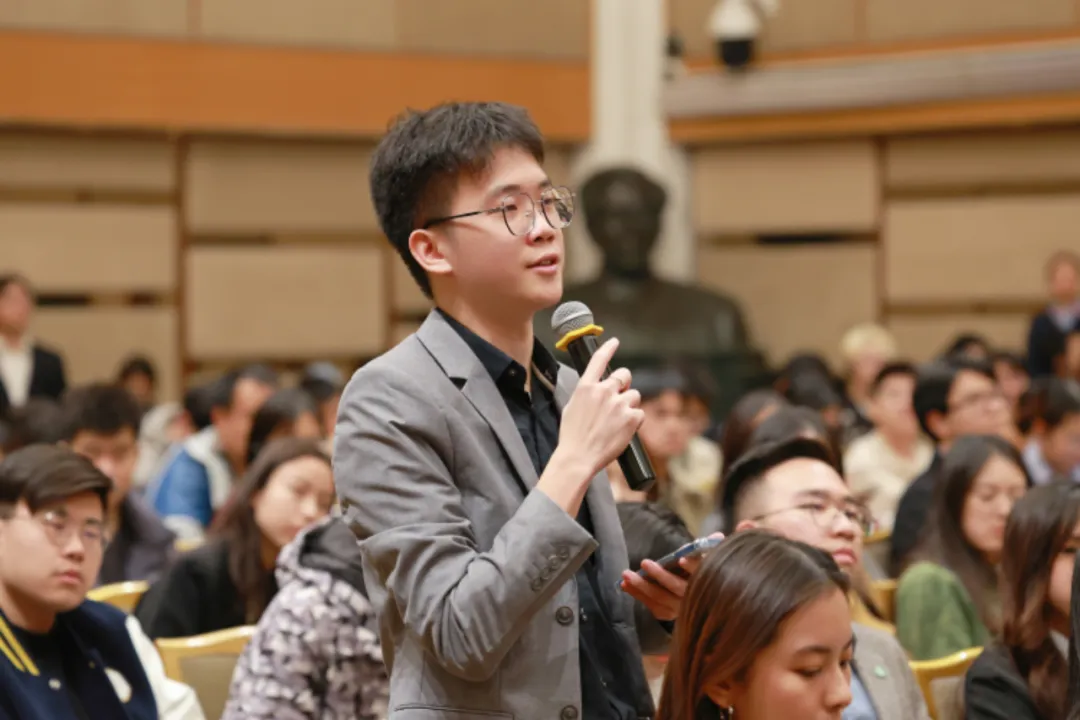
PKU student Lee Jun Hao
In response, Prime Minister reiterated that climate change is a major global issue and emphasized the importance of concrete actions that individuals can take. “Although there may be some economic losses in the short term, the long-term benefits are significant, allowing future generations to reap the rewards for even thousands of years,” he stated, believing that such a cause is worthwhile. He urged all students to fully utilize their knowledge gained at PKU to uphold the principles of truth and justice, which will serve as the backbone in facing climate challenges.
The visit by the Malaysian delegation reinforced the deep-rooted relationship between China and Malaysia, symbolizing a commitment to fostering deeper academic, economic, and cultural exchanges between the two nations and building a brighter future for all.
Reported by: Aden Tan, Zhang Yang
Edited by: Zhang Jiang
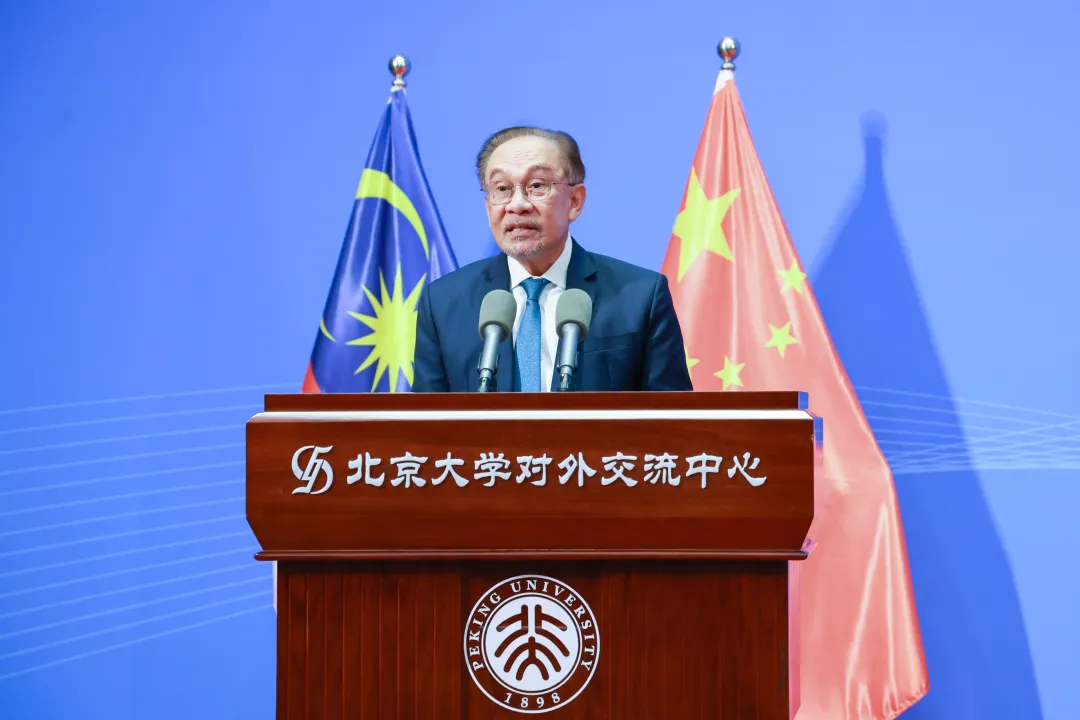
 Hao Ping, Anwar Ibrahim, Gong Qihuang (from left to right)
Hao Ping, Anwar Ibrahim, Gong Qihuang (from left to right)
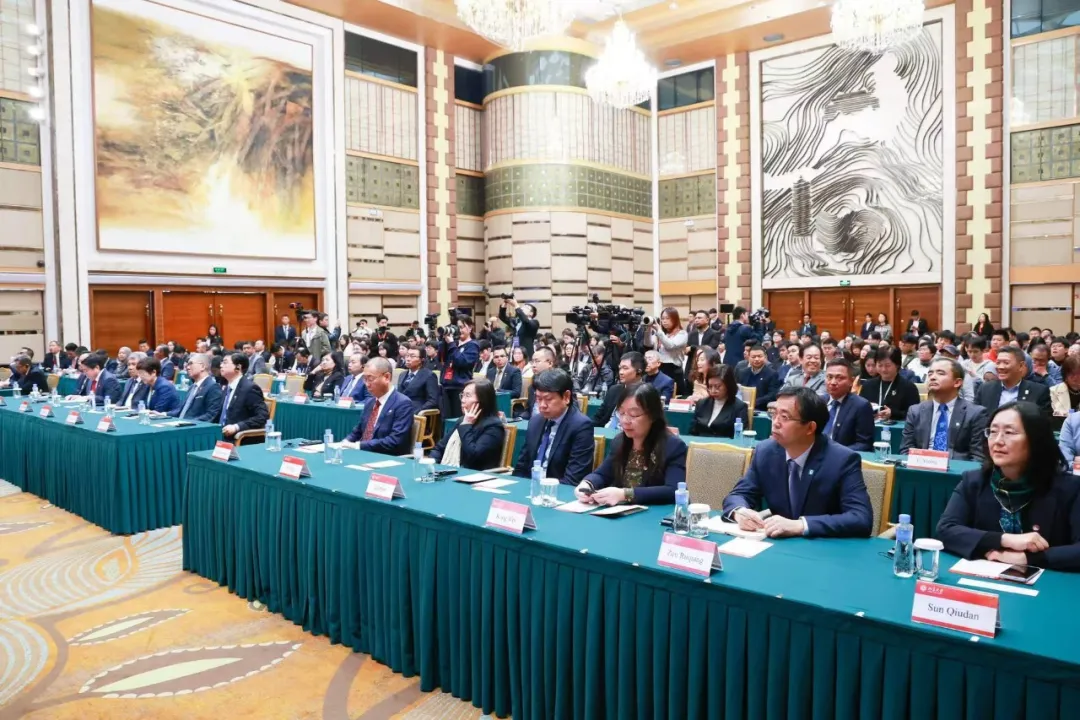

 PKU student Zhu Junyu
PKU student Zhu Junyu
